- Home
- Roy J. Snell
Princess Sarah and Other Stories Page 3
Princess Sarah and Other Stories Read online
Page 3
CHAPTER III
SARAH'S FUTURE IS ARRANGED
Two days later Sarah's father was buried, laid quietly away in a prettylittle churchyard two miles outside the town, beside the young wife whohad died nine years before.
The funeral was a very unostentatious affair; only one cab followed thecoffin, and contained Sarah and Mrs. Stubbs, the old nurse, and Jane,the untidy little maid, who, after the manner of her sort, wept andsobbed and choked, until Mrs. Stubbs would right willingly have givenher a good shaking.
Sarah was very subdued and quiet, and Mrs. Stubbs cried a little, andwould have cried more had she not been so taken up with keeping an eyeon "that stupid ninny Jane."
And then they went back to the little hot, stuffy house, and had a cupof tea, after which the vicar of the parish called and had a long talkwith Mrs. Stubbs about Sarah's future.
"I can't say we was good friends with him, pore thing," Mrs. Stubbsexplained; "but when death comes between, little differences should beforgotten. And Stubbs and me will forget all our differences now; it'sStubbs' wish as well as mine. I believe in sticking to your own fleshand blood, for if your own won't, whose can you expect to do it? SoSarah and me is the best of friends, and she is going back with me toshare and share alike with my own children."
"Oh, you are going to take Sarah," said the vicar, who had felt a greatinterest in the dreamy artist whom they had just left to his last longrest in the quiet country churchyard; "that is very good of you, verygood of you. I have been wondering what would become of the poor littlewoman."
"Why, what should become of her?" Mrs. Stubbs said indignantly. "Hermother was Stubbs' own sister."
"Yes," said the vicar, smiling; "but it is not every lady who would atall encourage the idea of bringing up a child because her motherhappened to be her husband's sister."
"You're right there, Mr. Moore; you are right," Mrs. Stubbs cried; "butsome women 'ave 'earts of stone instead of flesh and blood. I'm not oneof that sort."
"And about the furniture, and so on," the vicar broke in, having heardMrs. Stubbs's remarks about her own good qualities several timesalready.
Mrs. Stubbs looked round the room in good-natured contempt. "There'snothing to speak of," she answered--and she was right enough--"but whatthere is 'll have to go to paying for the doctor and the undertaker. Ifthere's a few pounds left over, Stubbs says put it into the savings bankand let the child 'ave it when she grows up. She'll want to buy a ringor something to remember her father by."
"And you are going to take the sole charge and expense of her?" thevicar exclaimed.
"Oh, yes. We've seven of our own, and when you've so many, one more orless makes very little difference. But I wanted to ask you somethingelse, Mr. Moore, and I'll ask it before it slips my memory. You know Mr.Gray--'e's gone now, pore thing, and I don't wish to say aught againsthim--brought Sarah up in a very strange way; indeed, as I said at thetime to the nurse, it's quite 'eathenish; and, it you'll believe me,sir, she didn't even know how many aunts and uncles she 'ad, nor whatour very names were. But he 'as taught her some things, and playing thefiddle is one."
"Yes, Sarah plays the violin remarkably well for her age," said thevicar promptly.
"Yes, so the old nurse says," returned Mrs. Stubbs, with an air ofmelancholy. "But I don't altogether 'old with it myself; it seems to mesuch an outlandish thing for a little girl to play on. I wish it hadbeen the piano or the 'arp! There's so much more style about them."
"The violin is the most fashionable instrument a lady can learn justnow, Mrs. Stubbs," put in the clergyman hastily, wishing to secure Sarahthe free use of her beloved violin, if it were possible.
"Dear me. You don't say so. What, are young ladies about 'ere learningit?" Mrs. Stubbs asked, with interest.
"Yes. I was dining at Lord Allington's last week, and in the eveningone of his daughters played a violin solo; but she doesn't play nearlyas well as Sarah," he replied.
"Then Sarah shall keep her violin and play to her 'eart's content," Mrs.Stubbs cried enthusiastically. "That was what I wanted to ask you--ifyou thought I should encourage or discourage the child in keeping it up.But, as you say so plainly encourage, I will; and Sarah shall 'ave goodlessons as soon as she's fairly settled down at 'ome."
"Then Sarah shall keep her violin and play to her 'eart'scontent."]
"That will be the greatest delight to Sarah, for the child loves herviolin," said the vicar heartily; "and that is not all, Mrs.Stubbs--but, if she goes on as she has begun, there will always be auseful, or at least a remunerative, accomplishment at her fingers'ends."
"Oh, as to that," returned Mrs. Stubbs, with a lordly indifference tomoney such as told her visitor that she was well blessed with worldlygoods, "Stubbs 'll provide for the child along with his own, and maybeher other uncles and aunts 'll do something for her, too. I will saythat for _his_ family, as a family they're not mean. I will say thatfor 'em."
So Sarah's future was arranged. She was to go home with Mrs. Stubbs,who lived at South Kensington, and be one with her children. She was tohave the best violin lessons to be had for love or money; and Mrs.Stubbs, in the warmth of her kindly but vulgar heart, even went so faras to suggest that if Sarah was a very good, industrious girl, and goton well with her practising, her uncle might very likely be induced tobuy her a new violin for her next birthday, instead of the dingy oldthing she was playing on now.
Poor, well-meaning Mrs. Stubbs! She little knew that the whole ofSarah's grateful soul rose in loathing at the suggestion. She droppedher bow upon the nearest chair, and hugged her precious violin asclosely to her breast as if it had been a thing of life, and that lifewas threatened.
"Oh, Auntie!" she burst out; "a new violin!"
"Yes, child; I think it's very likely," returned Mrs. Stubbs, delightedto see the effect of her suggestion upon her pale little niece, andquite mistaking the meaning of her emotion. "Your uncle is very fond ofmaking nice presents. He gave May a new piano last Christmas."
"But," gasped Sarah, "my violin is a real Amati! It belonged to mygrandfather."
"And if it did, what then?" ejaculated Mrs. Stubbs, in no way impressedby the information. "All the more reason why you should 'ave a new one.The wonder to me is you play half as well as you do on an old thing likethat."
"It's--it's worth five hundred pounds!" Sarah cried, her face in aflame.
"It's--it's worth five hundred pounds!"]
Mrs. Stubbs fairly gasped in her surprise. "Sarah," she said, "what areyou saying? Little girls ought not to tell stories; it's wicked. Doyou know where you'll go to? Sarah, I'm shocked and surprised at you!"
"Auntie, dear," said Sarah, "it's true--all true. It is, indeed! Askthe doctor, ask the vicar--ask _any_ one who knows about violins, andthey'll tell you! It's a real Amati; it's worth five hundredpounds--perhaps more. I'm not telling stories, Auntie, but Father wasoffered that much for it, only he wouldn't take it because he said itwas all he had to give me, and that it would be worth more to me someday."
Never had Mrs. Stubbs heard Sarah say so much at one time before; buther earnest face and manner carried conviction with them, and she sawthat the child knew what she was talking about, and was speaking onlywhat she believed to be the truth.
"You really mean it, Sarah?" she asked, putting out a hand to touch thewonderful instrument.
"Oh, yes, Auntie, it's _absolutely_ true," returned Sarah, using thelongest adjective she could think of the better to impress her aunt.
"Then," exclaimed the good lady, with radiant triumph, "you'd better'old your tongue about it, Sarah, and not say a word about it--or you'llbe 'aving the Probate people down on you, robbing the fatherless and theorphan."

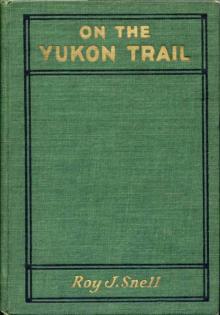 On the Yukon Trail
On the Yukon Trail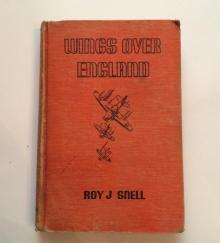 Wings over England
Wings over England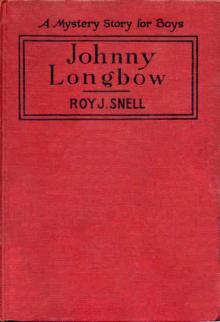 Johnny Longbow
Johnny Longbow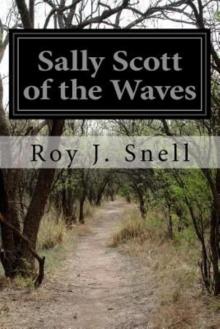 Sally Scott of the WAVES
Sally Scott of the WAVES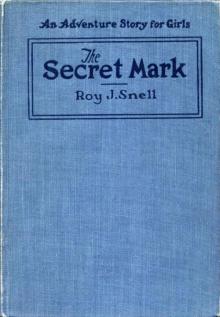 The Secret Mark
The Secret Mark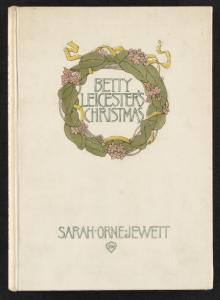 Betty Leicester's Christmas
Betty Leicester's Christmas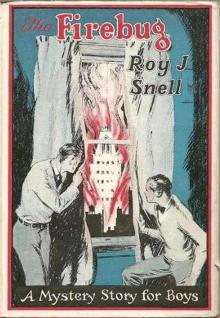 The Firebug
The Firebug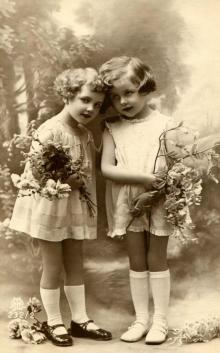 Minnie Brown; or, The Gentle Girl
Minnie Brown; or, The Gentle Girl Jack the Hunchback: A Story of Adventure on the Coast of Maine
Jack the Hunchback: A Story of Adventure on the Coast of Maine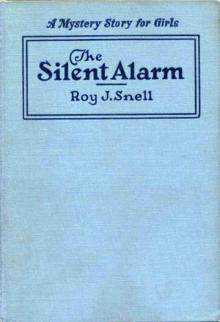 The Silent Alarm
The Silent Alarm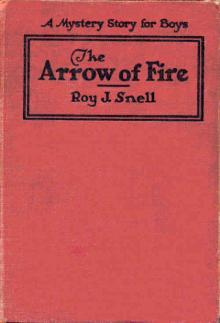 The Arrow of Fire
The Arrow of Fire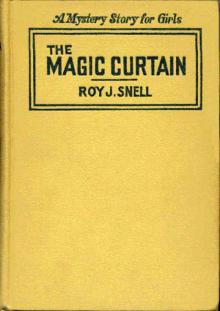 The Magic Curtain
The Magic Curtain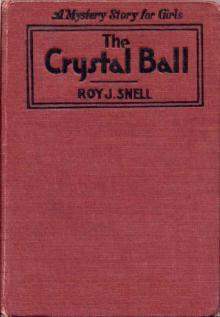 The Crystal Ball
The Crystal Ball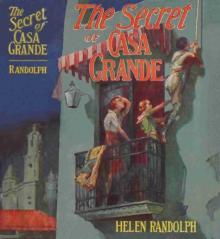 The Secret of Casa Grande
The Secret of Casa Grande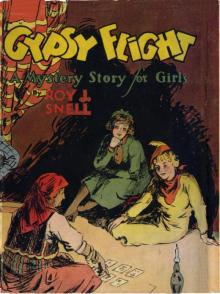 Gypsy Flight
Gypsy Flight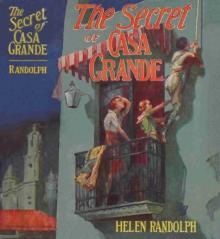 The Mystery of Carlitos
The Mystery of Carlitos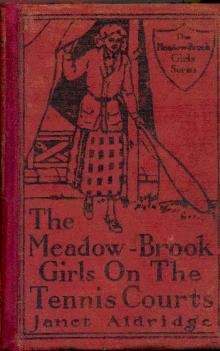 The Meadow-Brook Girls on the Tennis Courts; Or, Winning Out in the Big Tournament
The Meadow-Brook Girls on the Tennis Courts; Or, Winning Out in the Big Tournament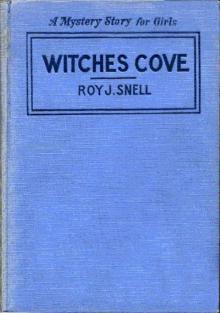 Witches Cove
Witches Cove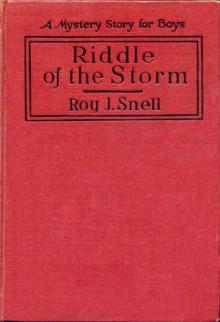 Riddle of the Storm
Riddle of the Storm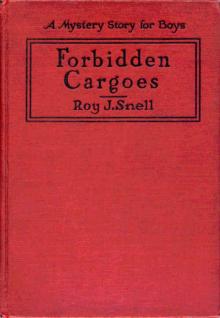 Forbidden Cargoes
Forbidden Cargoes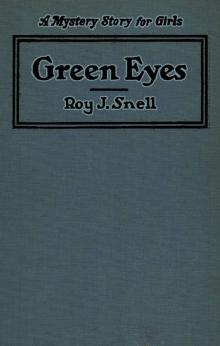 Green Eyes
Green Eyes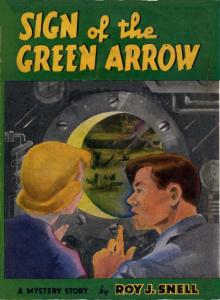 Sign of the Green Arrow
Sign of the Green Arrow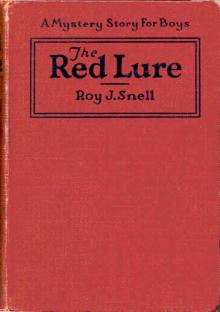 The Red Lure
The Red Lure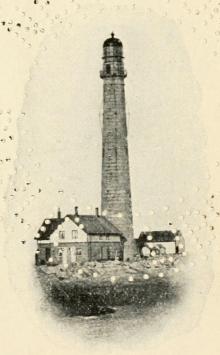 The Light Keepers: A Story of the United States Light-house Service
The Light Keepers: A Story of the United States Light-house Service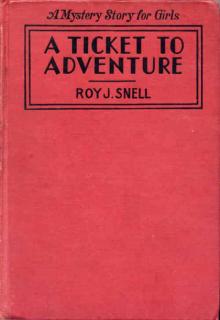 A Ticket to Adventure
A Ticket to Adventure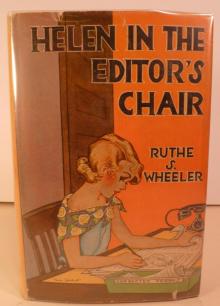 Helen in the Editor's Chair
Helen in the Editor's Chair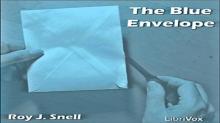 Blue Envelope
Blue Envelope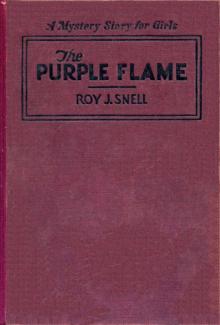 The Purple Flame
The Purple Flame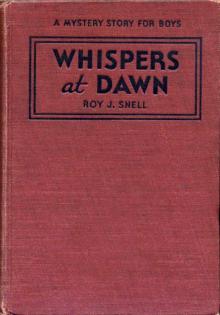 Whispers at Dawn; Or, The Eye
Whispers at Dawn; Or, The Eye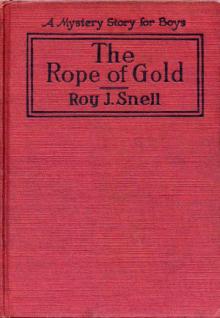 The Rope of Gold
The Rope of Gold Crossed Trails in Mexico
Crossed Trails in Mexico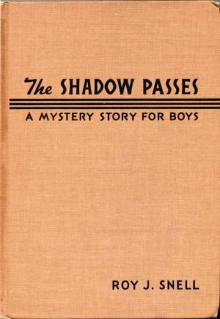 The Shadow Passes
The Shadow Passes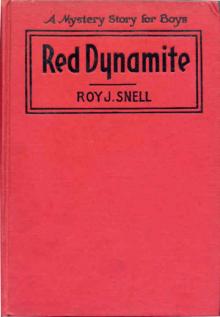 Red Dynamite
Red Dynamite Blue Grass Seminary Girls on the Water
Blue Grass Seminary Girls on the Water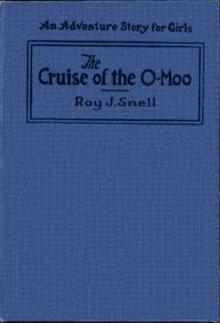 The Cruise of the O Moo
The Cruise of the O Moo